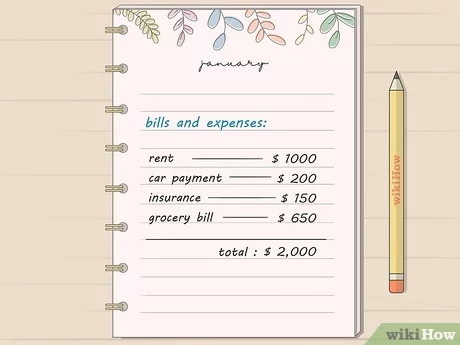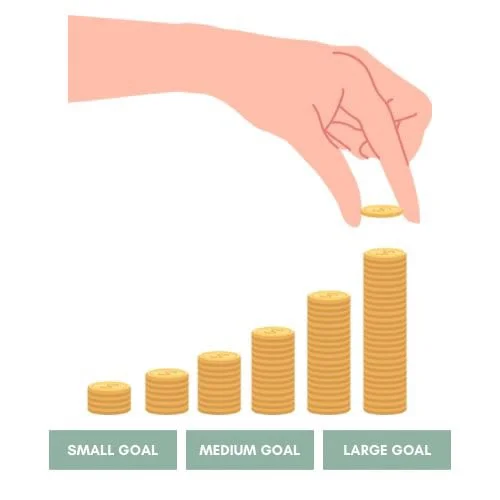Managing finances can be challenging, but learning how to reduce monthly household expenses is a smart way to take control of your budget and save more money. With rising costs of living, adopting effective strategies to cut unnecessary spending and optimize daily expenses is essential for financial stability. Whether it’s trimming utility bills, saving on groceries, or eliminating wasteful habits, these small changes can add up to big savings.
How to Reduce Monthly Household Expenses:
By implementing a few simple strategies, you can significantly lower your monthly costs and achieve your financial goals.
1. Understanding Your Spending Habits:
The first step to reducing household expenses is understanding where your money is going. Look closely at your bank statements and credit card bills to identify areas where you can cut back. Incorporating tools like budgeting apps or spreadsheets can help you track your spending, set financial goals, and even allocate resources for priorities such as estate planning. You’ll be better equipped to make informed decisions and achieve long-term financial stability by gaining clarity on your finances.

2. Cutting Back on Utilities:
Utilities like electricity, water, and gas can significantly impact your monthly budget. Here are some tips to reduce your utility costs:
- Energy Efficiency: Switch to energy-efficient light bulbs, unplug electronics when not in use, and adjust your thermostat.
- Water Conservation: Fix leaky faucets, take shorter showers, and collect rainwater for watering plants.
- Shop for the Best Deals: Compare energy and water rates from different providers to find the best deals.
3. Saving on Groceries:
Groceries are a major expense for most households. Here are some tips to save money on food:
- Meal Planning: Plan your meals for the week and make a shopping list to avoid impulse purchases.
- Buy Generic Brands: Generic brands often offer similar quality at a lower price.
- Cook at Home: Eating out can be expensive. Prepare meals at home to save money.
- Use Coupons and Discounts: Take advantage of coupons, discounts, and loyalty programs.
4. Reducing Transportation Costs:
Transportation costs can eat into your budget. Here are some tips to save money on transportation:
- Carpool or Use Public Transportation: Share rides with coworkers or use public transportation to reduce fuel costs.
- Maintain Your Vehicle: Regular maintenance can help improve your car’s fuel efficiency and prevent costly repairs.
- Walk or Bike: For short distances, consider walking or biking to save money on gas and parking.
5. Cutting Back on Entertainment Expenses:
Entertainment expenses can quickly add up. Here are some tips to save money on entertainment:

- Free or Low-Cost Activities: Explore free or low-cost activities like hiking, biking, or visiting local parks.
- Borrow or Rent: Instead of buying movies or books, consider borrowing them from the library or renting them online.
- Have a Movie Night at Home: Pop some popcorn, rent a movie, and have a movie night at home.
6. Track and Analyze Your Spending:
The first step in reducing expenses is knowing where your money goes. Use budgeting tools to categorize your spending and identify unnecessary expenses.
7. Budgeting for Household Expenses:
Creating a realistic monthly budget is crucial. Allocate funds for essential categories like rent, utilities, and groceries while setting aside a portion for savings.
8. Reduce Unnecessary Household Expenses:
Evaluate recurring costs such as subscriptions, memberships, or premium services. Cancel anything you don’t use regularly to free up funds.
9. How to Reduce Expenses in Daily Life:

Small daily habits can lead to big savings. For example:
- Brew coffee at home instead of buying it daily.
- Use reusable products to cut costs on disposable items.
10. Lower Utility Bills:
- Fix leaks to save water.
- Wash clothes with cold water.
- Limit the use of air conditioning and heating.
11. Invest in Quality to Save Long-Term:
While it may seem counterintuitive, investing in durable goods reduces the need for frequent replacements, ultimately saving you money.
12. Cut Costs Without Sacrificing Lifestyle:
- Plan staycations instead of expensive trips.
- Look for free local events for family outings.
13. Managing Credit Card Debt:
Pay off credit cards with the highest interest rates first. Opt for zero-interest balance transfer offers to save on interest charges.
14. Use Cashback and Rewards:
Leverage cashback apps, reward programs, and loyalty points to reduce costs on everyday purchases.
15. Simplify Home Maintenance:
DIY home repairs and regular maintenance prevent costly breakdowns. Learn basic fixes to handle common household issues.
16. Save Money with Bulk Buying:
Purchase items like cleaning supplies and pantry staples in bulk to lower costs.
17. Reassess Insurance Policies:
Review your insurance coverage regularly to ensure you’re not overpaying. Bundle policies for discounts or shop around for better rates.
Practical Tips for Long-Term Savings:
By implementing these strategies, you’ll find it easier to manage monthly household expenses effectively. Start small, focus on consistency, and watch the savings grow!

Conclusion:
Reducing monthly household expenses is a practical way to achieve financial stability without compromising your lifestyle. By implementing these strategies, such as cutting unnecessary household expenses, saving money on groceries, and adopting affordable transportation options, you can significantly lower your costs. Remember, small changes in daily habits can make a big difference over time. Start by tracking your spending, creating a budget, and exploring energy-efficient solutions to save money while living comfortably.
These tips show how to reduce expenses in daily life, helping you to manage your finances better and meet your long-term goals.
FAQS:
How to Save Expenses at Home?
Save expenses at home by creating a budget, reducing energy usage, and cutting unnecessary subscriptions. Plan meals to avoid food waste and use cashback apps for daily purchases.
How to Control Home Expenses?
Control home expenses by tracking your spending, prioritizing essential costs, and eliminating non-essential purchases. Opt for cost-effective solutions like DIY repairs and energy-efficient appliances.
How Do You Manage Household Expenses?
Manage household expenses by setting a budget, monitoring monthly bills, and saving for emergencies. Regularly review expenses to identify areas for savings and adjust spending habits as needed.
How Do You Reduce Expenditure?
Reduce expenditure by focusing on needs over wants, buying in bulk for discounts, and finding free or low-cost alternatives for entertainment and services. Transition to a minimalist approach to spend wisely.
External Resources:

Empowering parents to raise happy, confident kids. Get practical parenting tips and advice on our blog, Smart Parent Guides.
